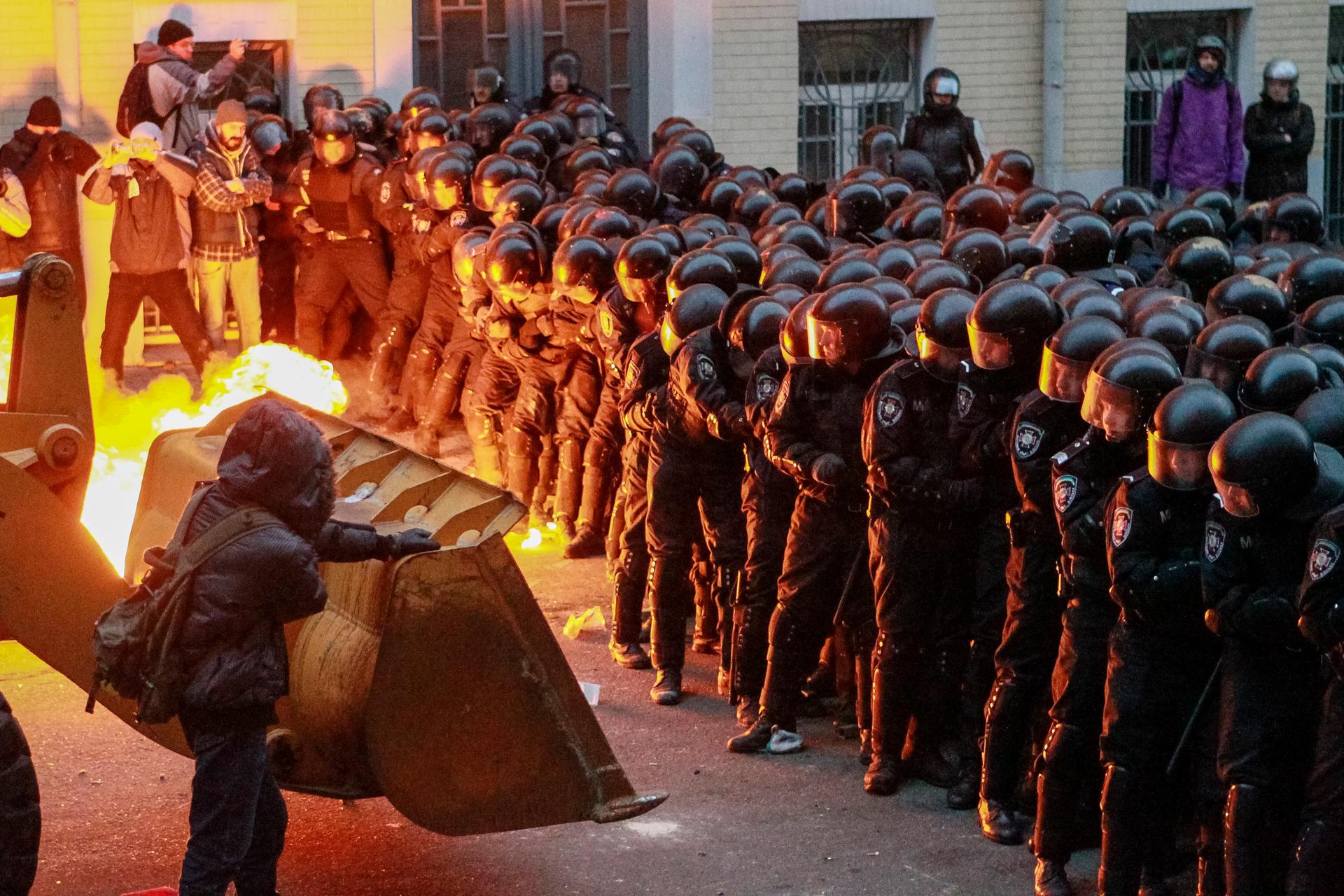In Ukraine, it’s the same president, but perhaps a new revolution
Protesters try to break through police lines near the presidential administration building during a rally held by supporters of EU integration in Kiev.
It all looks eerily familiar. Throngs of anti-government demonstrators controlled parts of downtown Kiev on Monday morning, while the police are in a holding pattern and the president of the country tries to figure out how to handle the situation.
The reason for the protests? President Viktor Yanukovych has walked away from a treaty with the European Union and turned toward Moscow instead, presumably under pressure from Russia’s leader Vladimir Putin.
It is the same fight as in 2004. Back then, Ukraine was torn between being a western-oriented country with close ties to the European Union and the United States or an ally of the regional power, Russia, and a bulwark against EU and NATO expansion.
Now, the EU will clearly be siding with the demonstrators. And German chancellor Angela Merkel has already appealed to Yanukovych to "do everything to ensure that the right to freedom of speech and peaceful protests is always protected."
Nine years ago, Ukraine’s so-called Orange Revolution was about a stolen election when pro-Moscow candidate Yanukovych — the same president as today — was declared the winner of the presidential election, while most Ukrainians thought the pro-Western candidate, Viktor Yushchenko, had won.
After weeks of massive protests under the orange banner of the Yushchenko camp, a re-vote under international observation gave the presidency to Yushchenko.
It was the end of a bitter and violent campaign between the two Viktors, which included the macabre accusation that there had been an attempt to poison Yushchenko with dioxin.
Yushchenko’s eventual win was widely perceived as a triumph of the pro-Western half of the country over the influence of its powerful Russian neighbor. Putin’s man lost and, presumably, Ukraine would now join NATO and the European Union.
Except, it turned out to be slightly different. The third player in the Orange Revolution was a woman called Yulia Tymoshenko. The “Ukrainian Joan of Arc” sided with Yushchenko in 2004 and was instrumental in keeping the protests going. She eventually became prime minister, but then didn’t get along with President Yushchenko, who fired her in 2005.
The beneficiary of the fall-out was Viktor Yanukovych, the pro-Moscow candidate from 2004. He ran against Tymoshenko and won — though Tymoshenko accused Yanukovych of rigging the election and she did not recognize the result.
But instead of leading another Orange Revolution, Tymoshenko became the target of a criminal case and she’s been in custody since August 2011.
It all smelled of Byzantine intrigue. The European Union, the United States, and even Russia voiced concern that the charges against Tymoshenko were politically motivated.
Now, in the latest twist of the story, Yanukovych was all set to sign an agreement with the EU in November and then abruptly changed his mind. He said the economic ties with Russia were too important for the country. And Putin made it clear he was unhappy with a Ukraine-EU trade link.
Once again, Yanukovych has a lot of his people against him. Protesters are demanding the government step down. The question now is whether they will be able to turn Yanukovych back a second time.
